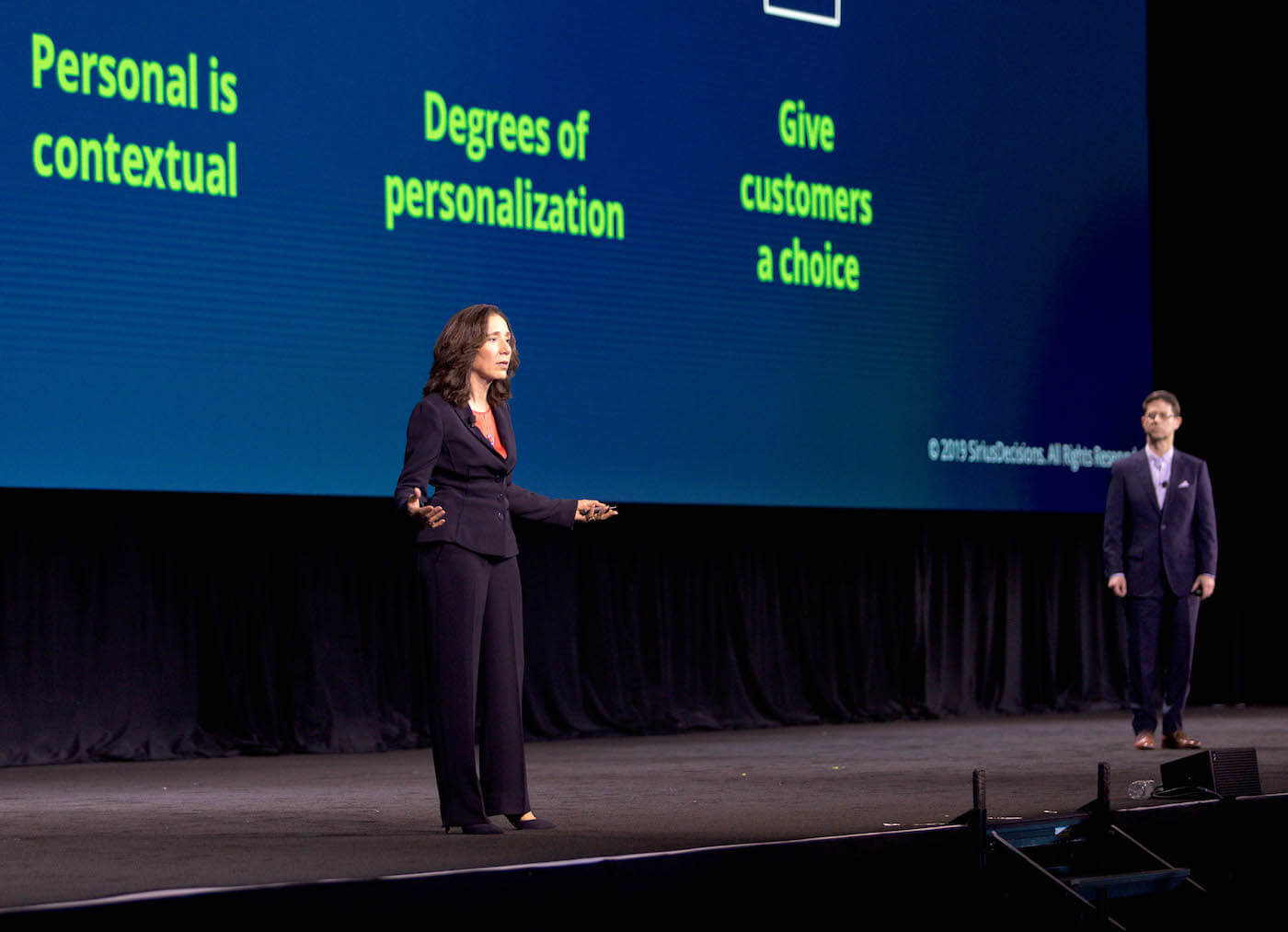All Customers Are Asking … Is for a Little Respect (and Relevance)
- B2B companies are investing heavily in customer insights and personalization technologies to better engage with customers
- Massive amounts of customer data aren’t helping companies understand customer behavior because they’re looking for out-of-date, siloed behavior patterns
- SiriusDecisions’ Respect and Relevance Continuum provides a five-step process to help companies focus their customer interaction strategies on customer needs
In the age of the customer, five words – respect, relevance, trust, loyalty and love – spell the difference between brand value and disaster. B2B companies have seen the writing on the wall – they’re investing millions of dollars and hours in the transformation from product-centricity to audience-centricity. They’ve embraced personas; account-based marketing; and tracking data about customer behaviors, preferences, sentiment and satisfaction.

“But everything we’re hearing from customers shows that despite our best efforts, customers trust B2B companies less now than they did five years ago,” said Isabel Montesdeoca today at her Summit keynote session with Peter Ostrow in Austin.
Isabel and Peter emphasized that B2B provider actions are making a negative impact on customers because their efforts are driven by flawed assumptions about what drives customer engagement and trust.
“Without understanding, we can’t deliver the kind of respectful and relevant interactions that motivate the emotions we introduced earlier,” Peter said. “And if we don’t interact with our customers in a respectful and relevant way, how can we develop a constructive, long-lasting, mutually beneficial relationship with them – the kind that fosters trust, loyalty and love?”
Knowing that better interactions will lead to customer trust, providers must shift their viewpoint once and for all from “what’s in it for the company” to “what’s in it for the customer” to ensure all interactions are built on a foundation of respect and relevance.
To help organizations break down the move to customer focus into tangible steps, SiriusDecisions has developed the Respect and Relevance Continuum. It contains five milestones or principles that support respectful, relevant interactions. Each of these milestones builds on the preceding one and expands the breadth and depth of customer-centricity:
- Private. Interactions comply with industry and market data privacy regulations and always respect customers’ contact preferences shared explicitly or via application settings.
- Personalized. Interactions are tailored to match explicit and implicit customer signals visible across first- and third-party data sources, and can result in increasing or decreasing levels of personalization.
- Dynamic. Interaction strategies are designed to enable ongoing evaluation of customer data and signals at scale through the use of AI to deliver relevant recommendations in real time.
- Interconnected. Interaction strategies establish and maintain respectful and relevant customer relationships across multiple provider and partner touchpoints.
- Effortless. Interaction strategies are built from the customer’s perspective to profitably deliver value to customers while reducing the amount of effort customers expend to achieve their goal.
Within the Respect and Relevance Continuum, each milestone has five components: triggers (external and/or internal signs that trigger the need to transform), rationale (a clear business case), sponsorship (who defines the vision), execution (who’s responsible for driving progress and delivering on the vision) and outcomes (what the transformation hopes to achieve).
“The shift to a customer-focused organization must have customer experience and profitability as equal goals,” stated Isabel, “so outcomes should be financial and cultural.”
As with all transformational change, B2B organizations must identify the change drivers they’ll use to alert them to the need to invest in change. Rather than change as a reaction to an event (e.g. loss of a big deal or customer, embarrassing publicity, a new competitor), best-in-class organizations change proactively, seeking to disrupt the market, delight customers and outflank competitors.
Organizations should use the Respect and Relevance Continuum to continuously improve internal and external brand excellence. “Start looking for the signals that tell you it’s time to make sure all interactions protect customers’ privacy and comply with their wishes, and you will gain their respect,” Peter advised. “Personalize all interactions appropriately, and customers will see that you offer relevance, not noise. Deliver help and support dynamically in real time, and customers will trust that you can help them. Ensure all interactions are seamlessly interconnected for every customer, and customer loyalty will grow. Design all interactions to be as effortless as possible for your customers, and become a brand they love.”